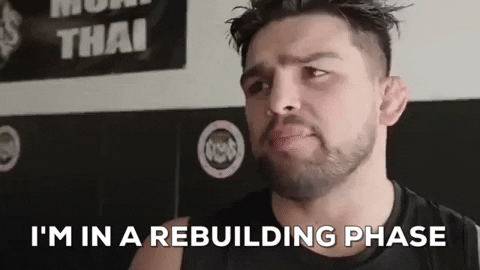Failure feels final when you’re in the middle of it. It feels like you’ve lost everything—your time, your effort, your identity. That’s exactly where I found myself when my first business, a company I had nurtured for 15 years, came crashing down.
We had scaled to eight figures, employed 70 people, and were making a real impact in our small town. But external pressures and internal oversights piled up, leaving me no choice but to close its doors. It was one of the hardest decisions I’ve ever made.
What I’ve realized since then is that failure wasn’t the end. It was an inflection point—an opportunity to rebuild not just my business, but also myself.
The Business I Thought I’d Have Forever
I started that business when I was just 18, in a town of 4,000 people. It was a bold move for someone my age, but I was determined. Over time, we built something I was incredibly proud of: a thriving business that created jobs, served our community, and grew into something much larger than I ever imagined.
But growth comes with challenges. By the time we reached our peak, cracks were already forming beneath the surface.
Rising costs: Steel prices skyrocketed, and our margins tightened.
Market changes: Competitors flooded the industry, and consumer demand shifted.
Internal oversights: I had been so focused on scaling that I hadn’t built the systems we needed to sustain it.
When the challenges piled up, I was faced with a decision: fight an uphill battle I couldn’t win, or close the business before things got worse.
The Emotional Toll of Closing a Business
The hardest part of closing the business wasn’t financial—it was personal. That company was more than just a source of income; it was part of who I was.
I felt like I’d let everyone down:
My team, who had been loyal and hardworking.
My community, which had supported me from the start.
Myself, for not finding a way to keep things afloat.
What made it even harder was the judgment I feared from others. Would people think I wasn’t capable? Would they label me a failure?
But here’s what I discovered: most people don’t see failure the way you think they will. My small-town community didn’t turn its back on me—they lifted me up. Their support gave me the strength to start again.
Starting Over Smarter
When I decided to move forward, I knew I couldn’t just do the same thing over again. I had to approach business differently.
Here’s what changed:
I focused on scalability.
My first business grew quickly, but it wasn’t built to sustain that growth. This time, I prioritized systems and processes that could handle scaling without crumbling under pressure.I embraced repeatable revenue.
One mistake I made early on was creating a product customers only needed once. Now, I focus on businesses that deliver recurring value.I built for resilience.
I can’t control external factors like rising costs or market shifts, but I can build businesses that are adaptable and diversified.
The New Chapter
Today, I own four businesses:
A coffee shop that serves as a community hub.
A climate-controlled storage facility that meets local needs.
An automated food drive-through that combines convenience with innovation.
A local email newsletter that connects people with stories and opportunities.
These businesses are built on the lessons I learned from my first venture. Every decision I make now is intentional, and every system I put in place is designed to withstand change.
Starting over wasn’t easy, but it was worth it.
The Truth About Failure
Here’s what I want you to know: failure isn’t the opposite of success. It’s part of it.
If you’re in the middle of a tough season, wondering if you’ll ever bounce back, let me remind you of this: you’re not starting from scratch—you’re starting from experience. Every challenge you’ve faced has given you tools and insights to rebuild better.
Failure is humbling, but it’s also clarifying. It strips away what doesn’t work and forces you to focus on what truly matters.
To Anyone Starting Over
If you’re staring down a setback, take heart. You have everything you need to create something even better.
Rebuilding isn’t just about business—it’s about becoming stronger, smarter, and more resilient. Let’s grow together.

